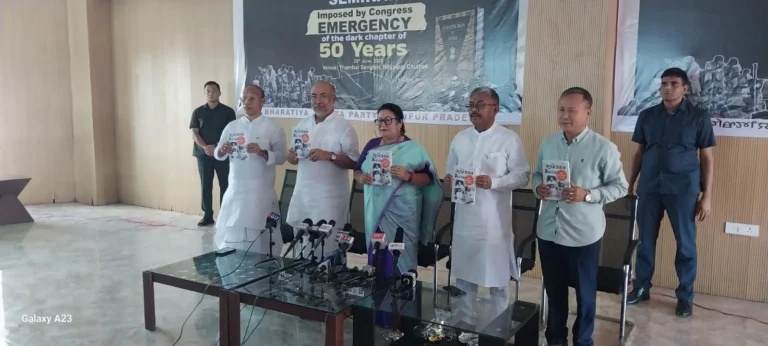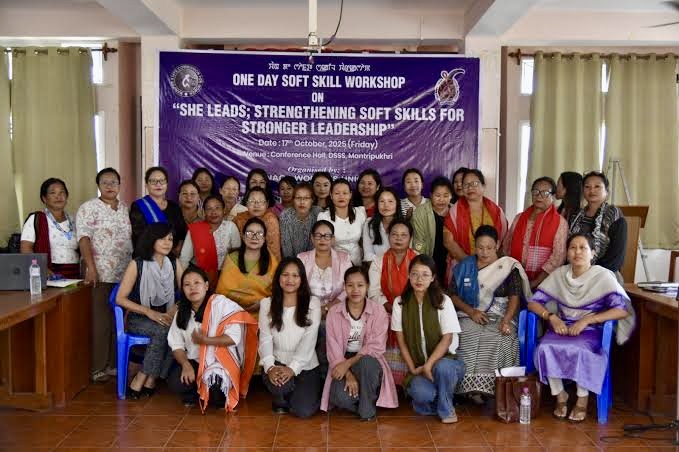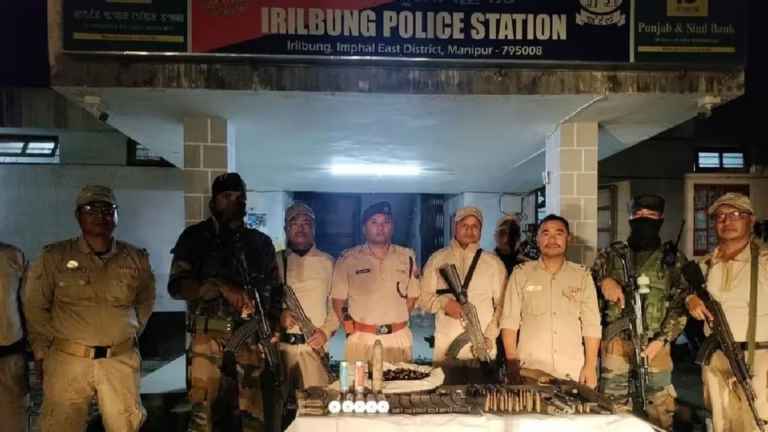Manipur Cabinet Approves Restriction of Government Schemes for Unrecognised Villages: What It Means for the State’s Development
Summary of the News Article
The Manipur Cabinet has recently approved a decision to restrict government schemes from being provided to unrecognised villages in the state. This decision is part of a larger effort to streamline the administration and ensure that only legitimate, recognised villages receive benefits. While the move has sparked some concerns about the impact on residents of these villages, the government believes this will improve transparency and development in the region.
Introduction: Manipur’s Bold Move – Aimed at Streamlining Benefits or Disenfranchising Villages?
In a significant decision, the Manipur Cabinet has given its nod to restrict government schemes and benefits from being extended to unrecognised villages. This move, while aimed at improving transparency and ensuring that resources reach only recognised villages, has raised concerns among citizens and political circles. Are the benefits of this decision going to outweigh the potential drawbacks? And what does it mean for the thousands of people living in these unrecognised villages?
Manipur, a state known for its rich cultural diversity and unique geography, has numerous villages, many of which are unrecognised. These unrecognised villages have been living in a grey area when it comes to accessing government schemes like healthcare, education, and infrastructure development. The decision to cut them off from such benefits will certainly reshape the landscape, but the big question is – how?
In this article, we will break down what this new move entails, how it will affect the people of Manipur, and what the larger implications might be for both the state and its development trajectory.
Why Was This Decision Made?
Challenges in Governance and Administration
The decision to withhold government benefits from unrecognised villages stems from ongoing challenges in governance. Manipur’s administration faces numerous hurdles when trying to allocate resources effectively. According to government officials, unrecognised villages often create confusion in resource distribution, leading to misallocation, corruption, and inefficiencies.
The government has found it difficult to verify the population and needs of these villages, which can sometimes lead to benefits being distributed unfairly or to non-existent communities. By restricting benefits to only recognised villages, the Cabinet hopes to improve the accuracy of its resource allocation and ensure that only legitimate, established communities receive public goods and services.
Ensuring Transparency and Fair Distribution of Resources
Another key reason for this decision is the drive for transparency. The Manipur government has repeatedly highlighted the need to streamline its operations and make sure that every rupee spent benefits the right people. With unrecognised villages often being more difficult to monitor, there are concerns that public funds may not be used effectively.
The decision to limit access to government schemes is also an attempt to create a more transparent system where accountability is higher, and it becomes easier to track where resources are going. By reducing the scope of beneficiaries, the government believes it can better focus on developmental goals and make sure recognised villages see more targeted, effective outcomes.
Impact on Unrecognised Villages: What’s at Stake?
Denial of Essential Services
One of the most immediate effects of this decision is the denial of essential services like healthcare, education, infrastructure, and welfare schemes to unrecognised villages. Many of these villages, already living in difficult circumstances, may now face even greater challenges. Without access to healthcare schemes, residents may struggle to afford medical treatments. The absence of educational benefits could also mean that children from these villages are left behind, widening the gap between recognised and unrecognised communities.
Potential for Increased Disparities
The move could deepen existing inequalities in the state. Recognised villages, now the sole recipients of government support, will likely see improved roads, better schools, and enhanced healthcare facilities. Meanwhile, unrecognised villages, without access to these services, may become increasingly isolated and underdeveloped. This could exacerbate social tensions and lead to further marginalisation of already vulnerable communities.
Ethnic and Political Repercussions
Manipur’s political landscape is heavily influenced by its ethnic diversity, and this decision could have political ramifications. The state has a history of ethnic tensions, and many of the unrecognised villages are home to smaller ethnic communities that may feel alienated by this move. This decision could be seen as favouring certain groups over others, potentially stoking discontent and unrest among marginalised populations.
The Government’s Defense: Why This Could Be Good for Manipur
Focusing on Development in Recognised Villages
The government’s stance is clear: by restricting benefits to recognised villages, it can better focus on their development. With limited resources available, the state must prioritise where it allocates funding. Recognised villages are often larger and more established, with greater infrastructure needs and development potential. By focusing on these villages, the government hopes to create model communities that can serve as examples for others.
Long-Term Goal of Encouraging Formalisation
Another key aspect of this decision is the potential to encourage formalisation. By restricting access to benefits for unrecognised villages, the government may be pushing these communities to seek formal recognition. While the process of recognition can be lengthy and bureaucratic, it ultimately benefits the village by granting it official status and access to state resources. This decision could be seen as a way to incentivise villages to undergo the formal recognition process.
Criticism and Concerns: What Are the Risks?
Humanitarian Concerns
One of the main criticisms of this decision is that it may disproportionately affect some of the most vulnerable communities in Manipur. Many unrecognised villages are small, isolated communities that lack the political influence or resources to advocate for themselves. Without access to government schemes, these villages may face increased poverty and hardship.
Human rights activists have expressed concerns that the decision could violate the basic rights of these communities. Denying access to healthcare, education, and welfare services could leave people without the means to improve their living conditions. Critics argue that the government should focus on supporting these communities rather than cutting them off.
Impact on Rural and Ethnic Communities
Rural communities and ethnic minorities could be disproportionately affected by this decision. Many unrecognised villages are home to ethnic minorities who already face challenges in accessing government services. By denying these villages access to government schemes, the decision could further marginalise these communities and deepen existing divisions.
Looking Ahead: The Path Forward for Manipur
Encouraging Formal Recognition
While the decision to restrict benefits from unrecognised villages may seem harsh, it could also serve as a wake-up call for communities to seek formal recognition. The process of becoming a recognised village can open the door to government support, better infrastructure, and improved living conditions. The government may need to take steps to make the recognition process more accessible and transparent, ensuring that unrecognised villages are not left behind.
Balancing Development and Equity
Moving forward, the challenge for the Manipur government will be balancing the need for development in recognised villages with the need for equity and fairness. While focusing resources on recognised villages may yield better short-term results, it is essential to ensure that unrecognised villages are not left behind entirely. Creating pathways for these villages to gain recognition and access to government support will be critical to ensuring long-term, inclusive development.
Conclusion: A Controversial but Strategic Move
The Manipur Cabinet’s decision to restrict government schemes to unrecognised villages is a controversial but strategic move aimed at improving transparency and governance in the state. While the decision has raised concerns about the impact on vulnerable communities, the government believes that it will ultimately lead to more effective resource allocation and development.
The path forward will depend on how the government manages the fallout from this decision and whether it can find ways to support unrecognised villages in gaining formal recognition. As Manipur continues to evolve, this decision will undoubtedly shape its political and developmental future.
FAQs
- What are unrecognised villages in Manipur?
Unrecognised villages are those that have not been formally recognised by the government and, as a result, do not have access to certain government schemes and benefits. - Why did the Manipur government decide to restrict benefits for unrecognised villages?
The decision was made to improve transparency and ensure that government resources are allocated efficiently and effectively to recognised villages. - What impact will this decision have on unrecognised villages?
Unrecognised villages may lose access to essential government services like healthcare, education, and welfare schemes, potentially deepening inequalities. - Is there a way for unrecognised villages to gain formal recognition?
Yes, villages can apply for formal recognition, which would allow them to access government schemes and benefits. - What are the political implications of this decision?
The decision could have political repercussions, particularly among ethnic minority communities that live in unrecognised villages, potentially leading to unrest.





